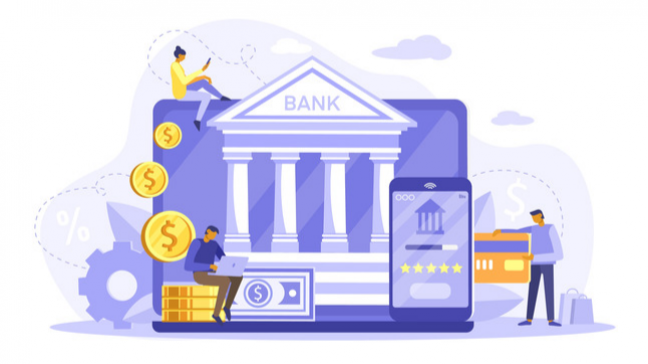Choosing a bank is overwhelming. There are currently more than 4,000 FDIC-insured commercial banks in the U.S., and with so many options, it can be hard to decide which one is right for you.
Before you fall into decision paralysis, take some time to sit back, review your options, and consider which features in a bank work best for you.
Not every bank is going to be the right fit, so you’ll want to explore what’s out there, what you need, and even what you don’t need.
Thankfully, with a bit of effort on your part (and this guide), you’ll be well on your way to choosing a bank that’s right for you, no matter whether you’re looking for a credit union, a bank, or an online institution.
Here are six steps to choosing a bank that fits you.
What’s Ahead:
- 1. Ask what bank accounts are available
- 2. Check their fees and interest rates
- 3. Read the fine print when choosing a bank account
- 4. Choose a bank that fits your lifestyle
- 5. Read online reviews to see what other customers have said
- 6. Look for extra products and services you can use
- Best banks worth considering
- The bottom line
1. Ask what bank accounts are available
Not every bank is built the same. When you’re choosing a bank, you’ll want to ensure it has the right products for you. These could be checking accounts, savings accounts, and any specialized accounts you need, such as a business account or an investment account.
If you’re in the CD ladder game, you’ll want to check out their certificates of deposit to see if the rates align with what you’re looking for. Or, if you want to have an interest-bearing checking account, then you should look for a bank that serves that goal.
If you’re also in the market for a mortgage, auto loan, or personal loan, ask what’s available and what kind of bundling options or offers you can get as a new customer.
Read more: The 7 financial accounts everyone should have
2. Check their fees and interest rates
Hidden fees can take a nasty bite out of your cold hard cash.
For example, some banks charge a maintenance fee for checking accounts. Or, if you’ve ever had a direct deposit arrive late, you may have experienced an overdraft fee.
Ask what kinds of fees they charge, how much, and what kinds of protection are available for overdraft situations. If you’re planning to sign up for a credit card with your new bank, review those fees carefully as well.
Interest rates should also play a key part in your choice. How do their rates compare to the competition?
Note that online banks are often able to offer higher interest rates and lower fees. That’s because they save on overhead by not having brick-and-mortar locations, and then pass those savings onto customers. They might offer a high-yield saving account that outpaces the interest rates at other banks and credit unions.
Keep both the fees and the interest rates in mind — one maintenance fee, for instance, can wipe out a lot of gains from a nice interest rate.
3. Read the fine print when choosing a bank account
Banks are required to share certain disclosures with anyone opening an account or getting a loan product. This fine print can help you understand how deadlines, late payments, and other features of the account could impact you.
It’s best to know yourself when it comes to this fine print. If you’ve had late payments in the past, look for a bank whose fine print includes a generous grace period so you can get back on track quickly.
The fine print will also include promotional rates or promotional terms. These are interest rates or fee structures that typically start off really amazing but change after a time — usually between 6 and 18 months. For instance, a credit card with introductory 0% interest sounds great, but you need to know when the interest rate changes to 18% so you can plan accordingly.
Read more: Best 0% APR credit cards
4. Choose a bank that fits your lifestyle
There are a few big categories of banks to consider, and some will fit what you want more than others.
- Small local credit unions often invest in the local community and have a brick-and-mortar location where you can meet with someone and ask questions.
- Online banks may have no in-person customer service, but they work to make up for it with transparent no-fee accounts and high-yield interest rates on savings accounts.
- Brick-and-mortar banks have a mix of both, offering in-person customer service for those who want it but sometimes with a wider product mix.
It’s important to think through how you’ll be using this bank. For example, if you like the idea of the small neighborhood credit union but know you’ll need to do mobile check deposits for your small business, you may be better off with a larger bank that offers this service.
Balance your goals and needs and don’t be afraid to ask questions before you sign up.
Read more: Credit unions vs. banks: Think local, save money?
5. Read online reviews to see what other customers have said
Any bank or credit union is likely to have both good and bad reviews online. The purpose of checking reviews isn’t to consider what every single person has to say but to see whether the bad reviews contain any red flags.
Unpleasant customer service, inflexible application of rules, or misleading advertising of accounts can all be good reasons to look elsewhere.
Reviews offer valuable insight beyond the purely positive messaging of the bank’s website itself.
6. Look for extra products and services you can use
Beyond the actual accounts, many banks now offer a variety of extra options that you may find very valuable — enough to make the decision to bank with them.
A variety of new or traditional products and services may appeal to you, including:
- Some credit unions offer a machine that sorts change and gives you cash for it.
- Some banks offer a perk when you sign up for a new checking account, such as $200 if you make 10 debit transactions in the first two months.
- Some banks disclose how they invest, specifically in ESG (environmental, social, governmental) organizations or socially responsible investments. If you want your money invested this way, talk to banks about what their social responsibility work looks like.
- If you use ATMs for cash a lot, the fees for easy access matter. Make sure there are functional ATMs you can use in the areas you frequent.
- Most banks and credit unions have an app at this point, but not all are created equal. See if your potential bank’s app includes features like mobile check deposit, any form of robo-advisor, easy tech support, and programs like Zelle that facilitate person-to-person money transfers.
Read more: Best checking accounts promotions and deals
Best banks worth considering
It can feel tough knowing where to start, but luckily we’ve got your back. Here are some of our favorite banks to consider when starting your search.
CIT
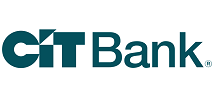
For some folks, a high savings account interest rate is top-of-mind. If you need to keep your cash somewhat liquid in a savings account, CIT Bank delivers a high APY with their Savings Builder Account, while still offering an array of products like loans, CDs, and money market accounts.
Do keep an eye on the fine print here — the savings builder wants a $25,000 balance or at least $100 a month in deposits. But if you want a reason to start saving in earnest, this could be the right fit. See details here.
Read more: CIT Savings Builder Account review: A high-yield account that forces you to save
CIT Bank. Member FDIC.Ally
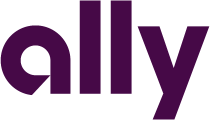
If you want an online bank that checks all the boxes — highly functional and useful app, a high-yield savings account, and even interest checking — Ally is a good place to go.
They’re online only but they keep their fees low, offer excellent customer service, and even refund you $10 a month for ATM fees if you use an out-of-network one.
Just be aware that while Ally has four credit cards available (Platinum, Everday Cash Back, Unlimited Cash Back, and Unlimited Cash Back for Nurses and Educators), the only way to get one is if you are invited to apply.
However, they do have loan services and Ally Invest for brokerage services.
Read more: Ally Bank review: Competitive rates and products
Discover
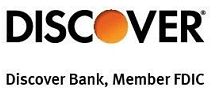
While you may know Discover for their credit cards, they also offer a full product line as an online bank. The rates are good, but the stand-out feature is that they have a high customer service ranking.
They’ve also won awards for being a great place to work, which seems to translate to highly satisfied customers.
Read more: Discover Online Savings Account review: Reach your savings goals sooner
DCU
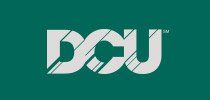
If you want the credit union experience but want to use it online (unless you happen to live in Massachussetts or New Hampshire), DCU is a Money Under 30 favorite.
From all your standard account offerings to plenty of loan products, DCU is full-service but also offers a credit card with no annual fee and a lower-than-usual APR, while also offering free checking (no monthly fee) and a savings account with a great rate.
If you need business accounts, you can open business checking and savings accounts all through DCU.
Read more: Best credit unions
Chime®

If you’re just getting started or have been burned by bank fine print before, Chime will likely appeal to you. Less a bank than a financial technology application, Chime* offers a Chime Visa® Debit Card and keeps things very simple with no fees2 and no minimum balances.
For setting up savings habits and easy use without the threat of fees, Chime wins.
* Banking services and debit card provided by The Bancorp Bank, N.A. or Stride Bank, N.A., Members FDIC, pursuant to a license from Visa U.S.A. Inc. and may be used everywhere Visa debit cards are accepted.
2 There’s no fee for the Chime Savings Account. Cash withdrawal and Third-party fees may apply to Chime Checking Accounts. You must have a Chime Checking Account to open a Chime Savings Account.
Read more: Chime review: Control your money with no monthly fees
The bottom line
By following these simple steps, you can make sure you find the best bank for your needs. And don’t forget to read reviews before making your final decision — they can give you a good sense of what it would be like to do business with a certain bank.
Checking out all of your options before making a decision is the best way to ensure you get the most bang for your buck (or in this case, the most interest on your savings).
Featured image: Prachova Nataliia/Shutterstock.com

